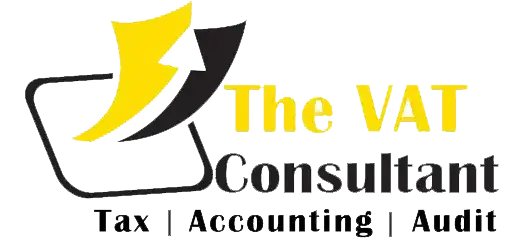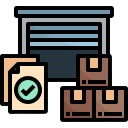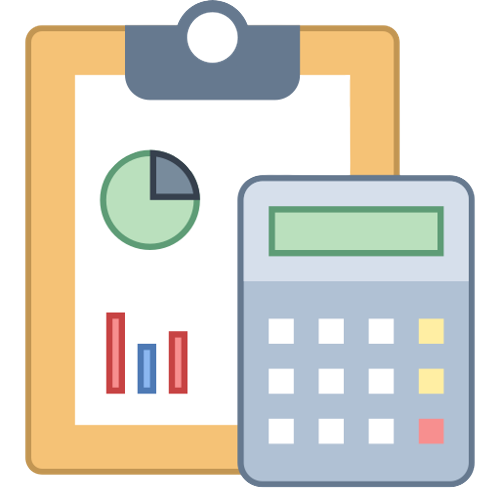According to the UAE’s value-added tax, the recipient or purchaser of goods or services should pay taxes to the government on certain notified supplies. This is called a reverse charging mechanism. In the UAE VAT, the following consumables need to be charged in reverse:
Import related goods or services for commercial purposes
Taxable supply of any crude oil or refined oil, unprocessed or processed natural gas or any hydrocarbon that is resold or produced and distributed by a registered supplier to a registered purchaser in the UAE State
Suppliers who do not have a place of residence in the state provide goods or services to taxable persons who have a place of residence in the UAE state
To learn more about reverse charging power sources, please read VAT reverse charging mechanism
The consignee is responsible for the details of the output value-added tax paid for the offset supply, please provide it in box 3 of the “Sales and All Other Outputs” section of the VAT Form 201, “Supplies subject to offsetting clauses”. However, any imported goods that have been declared to the UAE Customs to be returned need to be declared in column 6 “Goods imported into the UAE”. This means that Box 3 will mainly be used to declare the details of imported services and the import of goods that have not been declared through UAE customs.
As shown in the figure above, the payee only needs to declare the net value, the value of the reverse-charged goods and the applicable value-added tax. The value and output VAT of the following types of reverse charging consumables should be included in column 3 “Supplies subject to reverse charging regulations”.
Services obtained from foreign suppliers are subject to standard value-added tax
For services received from foreign suppliers, the value-added tax rate is zero
The goods received are subject to reverse charging regulations and have not yet been declared to UAE Customs (for example, import through import declaration)
Local supply subject to reverse charging regulations (for example, specific supply within the oil and gas industry)
Please note that the goods imported into the UAE that are subject to the reverse charging clause have been declared to the UAE Customs, and therefore should be reported in Box 6 of the VAT Form 201.
Provide key points of reverse charging in VAT return 201
The box number “no” only declares the export value-added tax liability for the above reverse supply
The eligible input tax of these consumables needs to be reported in box 10 of the VAT return 201
Ensure that there is no declaration in box 3 of the import of goods declared through UAE customs
ZERO-RATED AND EXEMPT SUPPLIES IN VAT FORM 201
In the UAE VAT return 201, it is required to provide details of zero-rated supplies and duty-free supplies in columns 4 and 5 of the “VAT on sales and all other output” section. In this article, let us discuss zero tax rates and duty-free items in tax returns (VAT Form 201).
Zero-rated items in VAT Form 201
The zero-rated supply in the UAE’s value-added tax refers to taxable supplies, and the value-added tax is charged at zero rate. Generally, all exports of UAE goods and services will be treated as zero-rated supplies. In addition to exports, in the UAE, education services, healthcare services, residential buildings used for human occupation, etc. are also regarded as zero tax rates. To learn more, please read Zero-Rate Supplies in UAE Value Added Tax.
In VAT Form 201, taxpayers engaged in the supply of zero-rated goods and services should provide detailed information in box 4, as shown below.
Zero rated consumables
Since the value-added tax of these supplies is calculated at zero rate, only the net value of zero-rated supplies (after deduction of adjustments to the credit notice) should be recorded in this box. The following are the types of consumables that should be included in box No. 4:
- Exports of goods and services outside the UAE
- Local supply of certain educational services and related goods and services
- Local supply of certain medical services (such as preventive and basic medical services and related goods and services)
- Supply or import investment precious metals
- Crude oil and natural gas supply
Duty-free supplies in VAT Form 201
According to the UAE’s value-added tax, certain tax-exempt goods or services are stipulated in administrative regulations and no value-added tax is levied on them. This means that no value-added tax is charged when these goods or services are provided. The following goods and services are exempt from VAT:
- Notify financial services
- Residential building
- Bare land
- Local passenger service
In order to treat the above-mentioned supply as exempt from VAT, it must meet certain conditions mentioned in the UAE VAT Law and Executive Regulations. To learn more about duty-free products and applicable conditions, please read Duty-Free Products in the UAE.
All duty-free goods should be reported in Box 5 of the “Tax Return” as follows:
As shown above, since the supply does not include VAT, you only need to declare the net value of the tax-free supply in this box (after deducting the adjustment to the credit notice). The following are the types of consumables that should be included in box 5:
- Local supply of certain financial services
- Residential buildings provided by sale or lease, with the exception of zero value-added tax rate
- Bare ground supply
- Local passenger transportation supplies
Key points of VAT Form 201 with zero tax rate and duty-free goods
- Although zero-rate and duty-free products are not subject to VAT, the meaning of VAT is different
- Companies need to clearly identify zero tax rates and duty-free products and report them in the relevant boxes.
- Only the net worth needs to be declared in boxes 4 and 5. If there is any credit note, only the net value needs to be adjusted and reported


























